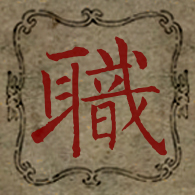Overview
Useful tips for “Identity” :Everyone’s identity in the Yin house
Wet nurse
乳母:中国古代宫廷和贵族不少女性都不会亲自喂哺子女,而是雇用乳母以母乳喂哺婴儿。乳母是高级仆妇地位高,小时候要代替主人家给婴儿喂奶,孩子长大了还要照顾他的起居,教育言行。由于乳母与乳子关系亲密,有时感情会比对亲生母亲还要深厚。
Wet nurse: In ancient times of China, quite a few women of royal families and nobles were not willing to feed on their own but employed a wet nurse to breastfeed their babies. A wet nurse enjoys a high social class as a senior servant, because she feeds the babies of her owner and take care of them when they grow up. The relationship between a wet nurse and a baby may be much closer than that between the baby and his/her biological mother.
Maid
丫鬟:多为年轻女仆,属于奴隶,没有人身自由,负责服侍主子的日常起居,或干一些杂役。
Maid: Often young female servant. Like a slave, she has no personal freedom. She takes care of the daily routines of her owner or does some chores.
Retainer
门客:中国古代达官贵人家中豢养的一些有才华的人,他们寄食于贵族门下并为之服务,有的是有具有真才实学,但是也有一些是徒有虚名,骗吃骗喝的。
Retainer: The talented people who lived as dependents under a noble or officeholder and serve their masters. Some of them had genuine knowledge and capabilities, but some others enjoyed an undeserved reputation.
Steward
管家:古代达官贵人家中管理奴仆和事务的人。
Steward: People who managed servants and affairs for the family of a noble or officeholder.
House guard
护院:古代达官贵人家看家护院的保卫人员。
House guard: Guards who protect the houses for a noble or officeholder
Book-boy
书童:古代侍候主人读书的未成年男孩子,平常还负责整理书房,帮助主人研磨或者是购买书籍。
Book-boy: A boy serving in the study of his master. He often arranges the study, helps with grinding the ink or purchasing books.







